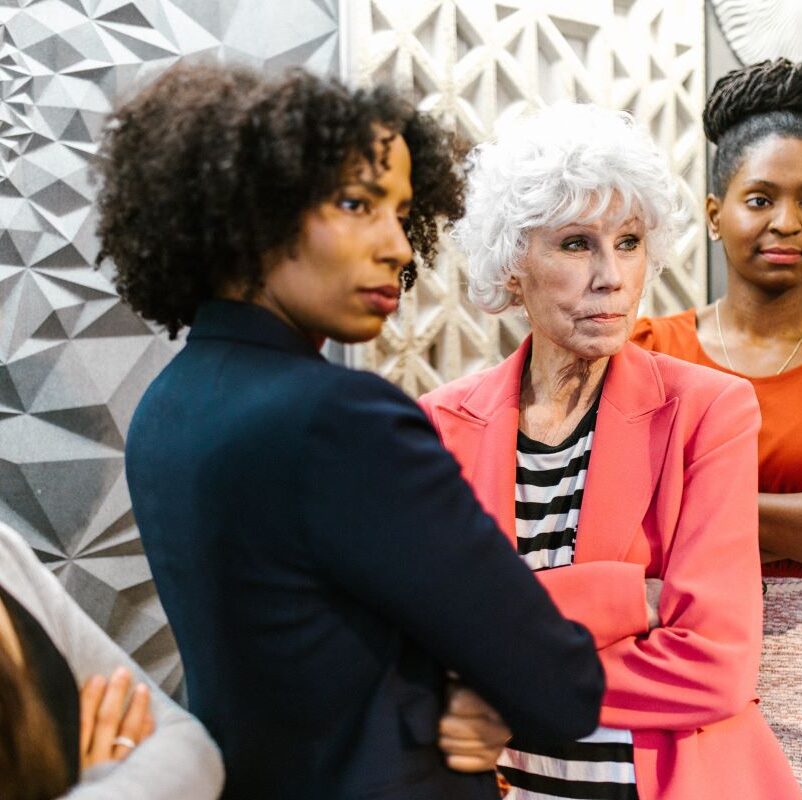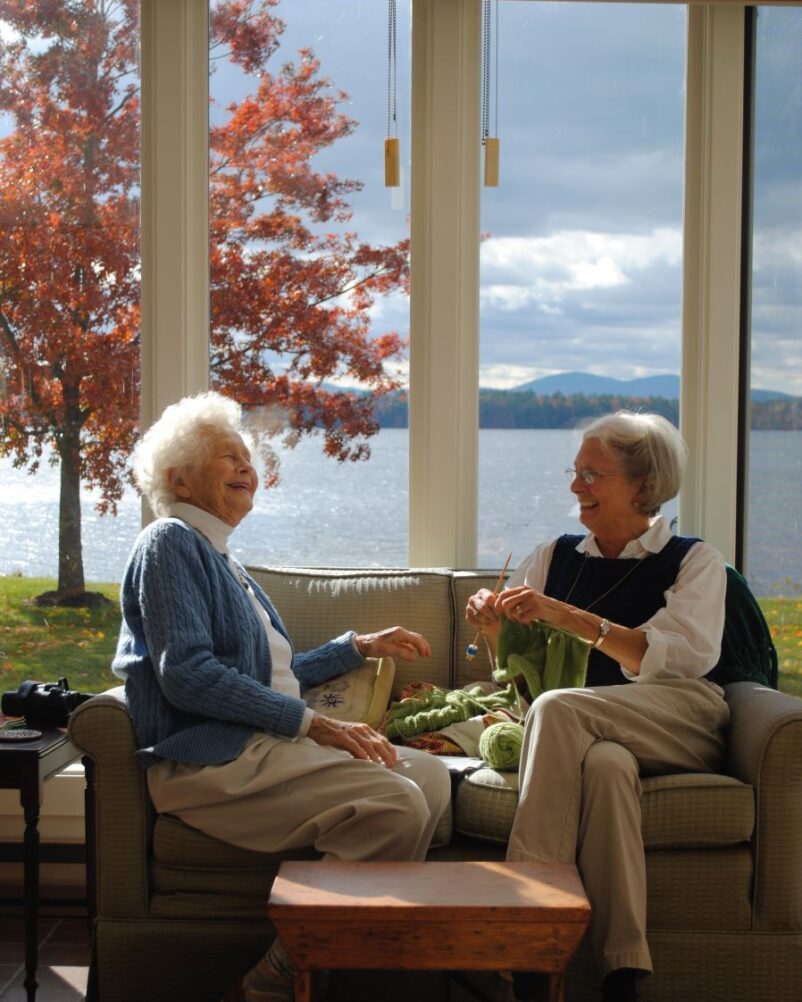
It usually comes as a (not so pleasant) surprise the first time we are referred to as “middle aged,” but that doesn’t begin to compare to when we are labeled as “senior citizens.”
After all, we have lots of life left to us, and many of us are still working and doing the normal “adulting” routines, so when and how do these terms define us, anyway?
This very discussion with my like-aged friends led to the naming of this blog. We can’t be of senior citizen age, can we? No way!
Hence, the name, “Senior Denial.”
The truth is, there is no exact age when the baton passes from being middle-aged to a senior citizen age. Some businesses informally set the age of being a senior by begin offering discounts at age 50, whereas others hold out to the age of 65. But some say age 55, age 58, age 60, and age 62. In other words, your guess is as good as mine.
What is Seniorhood and Why Does it Matter?
In today’s society where youthfulness is often idealized and celebrated over other phases of life – especially among women – recognizing the value of being senior citizen age is crucial.
It underscores the importance of respecting not-so-young individual contributions to society while offering supportive resources that help them lead fulfilling lives during this stage.
 Seniorhood (a.k.a. senior citizen age) is a term that refers to the life stage of individuals who have moved past being middle aged.
Seniorhood (a.k.a. senior citizen age) is a term that refers to the life stage of individuals who have moved past being middle aged.
Some individuals at senior citien age are as active as ever, and you wouldn’t know they are older by the amount of energy and activities they enjoy.
For others, however, senior citizen age is the stage where some people may begin to experience physical changes such as decreased mobility, deteriorating hearing and vision, and chronic health conditions like arthritis or diabetes.
So, it matters because it sometimes can determine how we feel about this age and stage of life, and how others view our worth and contributions to society. This may not be fair, but in many ways, it is still true.
Defining Senior Citizen Age: What Qualifies?
The definition of senior citizen age can vary depending on who you ask. Some may argue that reaching the age of 50 qualifies as being a senior, while others believe it is not until one reaches retirement age at 65.
Some may even argue that seniorhood should be defined by an individual’s physical or mental health rather than their age.
There are also cultural and societal factors to consider when defining senior citizen age. In some cultures, elder individuals are highly respected and valued for their wisdom and experience regardless of their age.
Meanwhile, in Western societies, there tends to be a negative connotation associated with aging and the inevitable senior citizen age.
Regardless of the specific senior citizen age that defines seniorhood, it is important to recognize and celebrate the contributions and experiences of older individuals within our communities.
This includes providing support for healthcare needs, social engagement opportunities, and access to resources that allow seniors to maintain independence as they age.
What’s the Value of Being Senior Citzen Age?
Once we are past the shock and denial that someone thinks of us as being senior citizen age, quite often comes the acknowledgement that getting a “senior discount” at establishments is actually a nice perk!
My husband and I are in our early 60s, and most of the time we don’t ask for or utilize a senior discount.
But lately, it seems like we are either called out on it by sweet young clerks (i.e. “Would you like to use your senior discount?” or “Did you know we have a senior discount program?”) or we are seeing its savings in companies we already frequent.
When reserving our seats for a recent movie, I realized we saved $2 per ticket, and went ahead and checked the “senior” box.  Marriott Hotels gives us a senior discount as well. And we both became AARP members after seeing the positives from being in their program.
Marriott Hotels gives us a senior discount as well. And we both became AARP members after seeing the positives from being in their program.
So, my current approach to this is simple. When there is a place I am already frequenting, I will look around and see if there is a pricing discount available. I don’t ask restaurants in general unless I see it on their menu, but I’ll admit a certain “happy factor” in saving money in museum admissions, book purchases, or even national park entrances.
After all, when I look in the mirror I have to begrudgingly acknowledge that I’m no longer that wild and free 20s-something year old. At the same time, I also see that I’m a well-seasoned, active woman who has lots of adventures and excitement still to come. And, maybe those discounts my pride is letting me use will enable me to buy a better bottle of wine or splurge on dessert every now and then! So, why not?
But, back to the burning question of, “What age is a “senior citizen?”
Once you get past the answer that there is no one correct senior citizen age or standard, that information can be a tad freeing. In the U.S., the transition from middle aged to a senior is typically somewhere around age 60 to 65.
That’s based on when a majority of individuals retire and become eligible for assistance programs like Medicare.
So, I guess we can go with that.
Senior, Senior Citizen, Elderly, Geriatric … Oh My!
There are a lot of terms used to describe someone who is transitioning past the “middle-aged” years, and let’s admit it that we don’t like most of the terms. We can all agree that we know an elderly person when we see one, and it’s not us, right? And, what’s the difference?
We’ve already established that the term “senior citizen age” is typically defined as someone who is at least 60 years of age, although some say the person needs to be at least 65. Most of us don’t like the term ‘senior citizen” either, because it seems suggestive of being really old.
For whatever reason, being called a “senior” is much more palatable, although the rational side of our brain knows that the terms describe the same person.
So, after careful consideration, I think the transition from middle aged to senior is just the next step of the aging game and that it often means that both terms apply to individuals who are active, may be working, have hobbies and interests, travel, etc.
Next, is typically elderly, and it may apply when a senior individual starts slowing down. Maybe travel is more limited and activities are less physical.
Finally, geriatric is often a term used by the medical community and references elderly individuals who may have physical and mental concerns.
Whether these general descriptions apply to you or you’re the friend or family member
Eradicating the Stereotypes About Aging
As people age, they often face negative stereotypes and assumptions about their abilities and worth. These attitudes can create significant challenges for seniors as they strive to maintain their independence, stay active, and contribute to society.
Some common stereotypes include the belief that seniors are frail, forgetful, or resistant to change. Unfortunately, these misconceptions can lead to discrimination in healthcare settings, employment opportunities, and social situations.
One of the biggest challenges of fitting into the category of senior citizen age is combating these negative stereotypes through education and advocacy. Seniors must work to educate others about the realities of aging and dispel myths surrounding their capabilities.
This might involve speaking up when faced with ageist comments or participating in community events that showcase the talents and skills of older adults. By challenging negative stereotypes head-on, seniors can help shift societal attitudes towards aging.
Another challenge facing seniors is finding ways to stay engaged and connected as they age. Many older adults struggle with loneliness or isolation due to a lack of social opportunities or physical limitations.
 Addressing this issue requires a multi-faceted approach that includes community outreach programs, volunteer opportunities for seniors, and access to technology that enables virtual connections with friends and family members.
Addressing this issue requires a multi-faceted approach that includes community outreach programs, volunteer opportunities for seniors, and access to technology that enables virtual connections with friends and family members.
By prioritizing social engagement throughout later life, seniors can overcome negative stereotypes by demonstrating their continued relevance within society.
The Benefits of Growing Older: A Positive Outlook
Growing older is a natural part of life, and it comes with many benefits. One of the most significant advantages of aging is the opportunity to gain wisdom through experience.
With age comes greater understanding and insight into life’s complexities, allowing us to make wiser decisions and better navigate difficult situations.
Another benefit of growing older is the ability to find joy in simple pleasures. As we age, we become more appreciative of the little things in life, such as spending time with loved ones or enjoying nature’s beauty. We also have more time to pursue hobbies and interests that bring us happiness.
Finally, growing older allows us to create a lasting legacy for future generations. Through our experiences and accomplishments, we can leave behind a positive impact on the world around us.
Whether it be through volunteering our time or passing down knowledge to younger generations, seniors have much to offer society as a whole.
Overall, embracing a positive outlook on aging can lead to a fulfilling and rewarding experience later in life.
Questions or comments? Contact us!
Written by
Robin McClure
Robin is the author of 7 parenting books and has 3 grown children, 3 spoiled rescue dogs, and a very understanding husband. She holds a bachelor's degree in journalism and a master's degree in communications, and spends her time writing, drinking coffee, and planning the next grand adventure.



